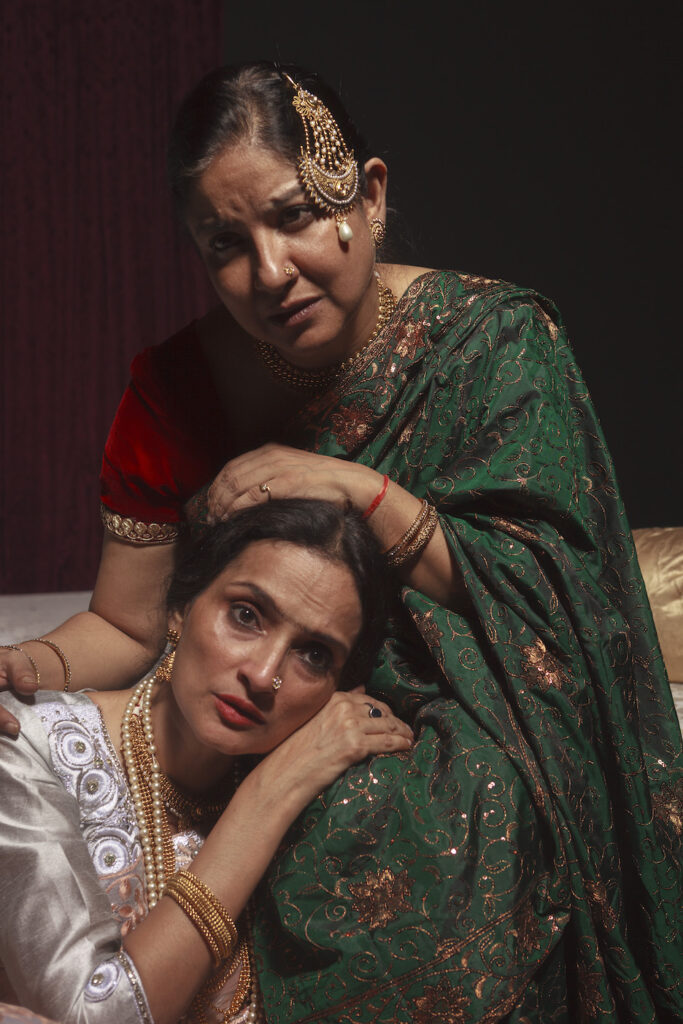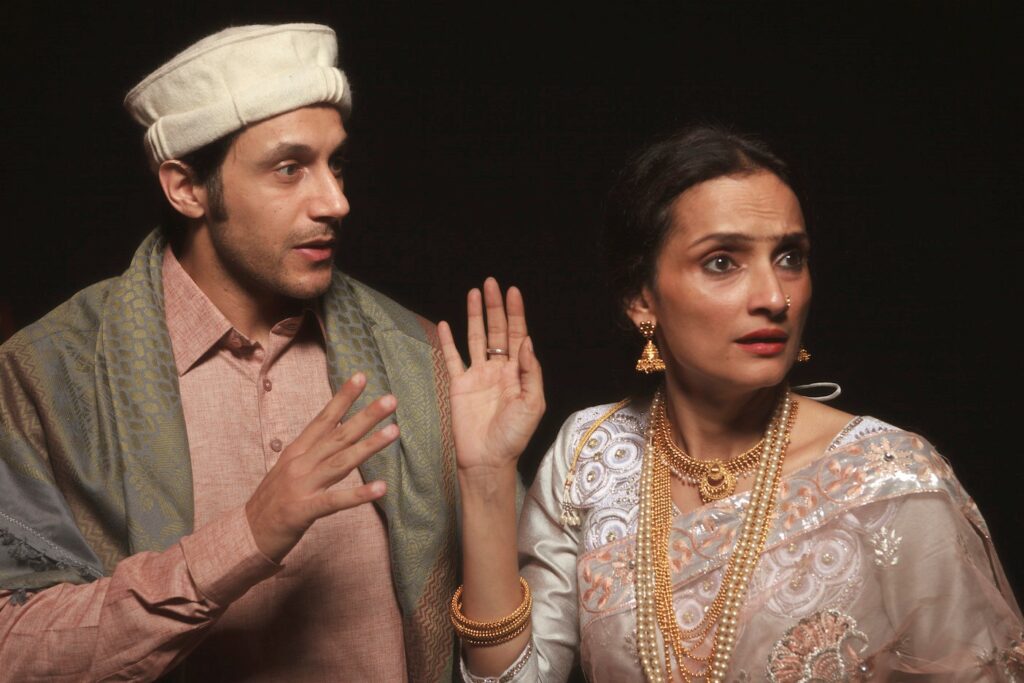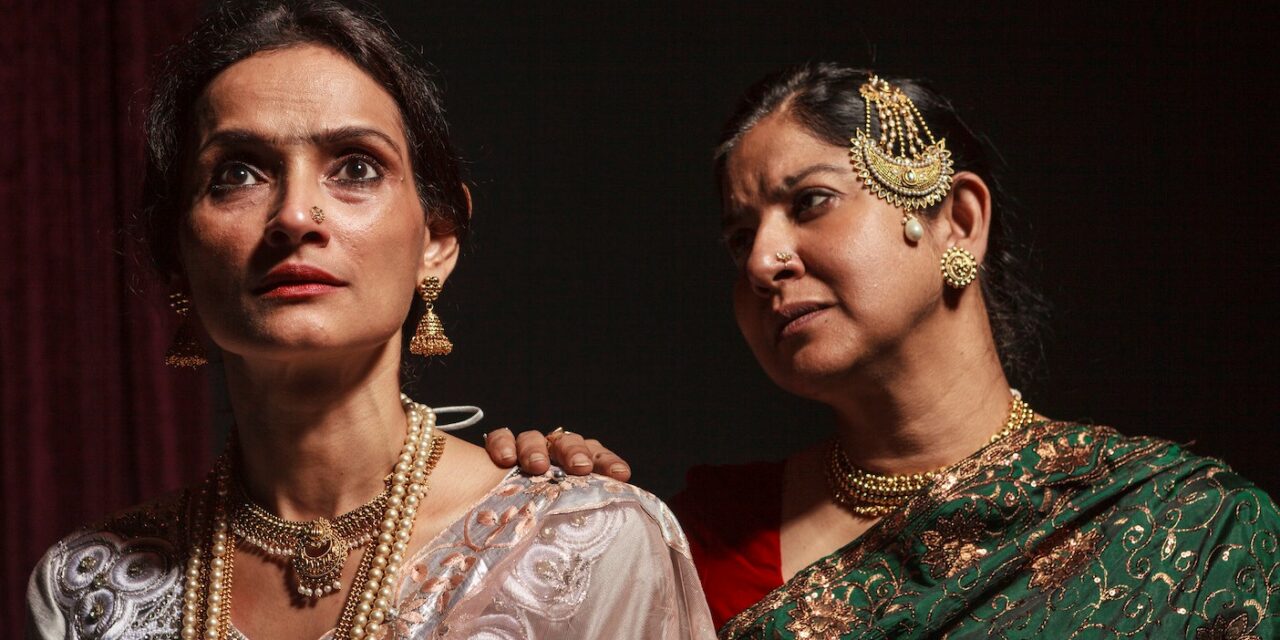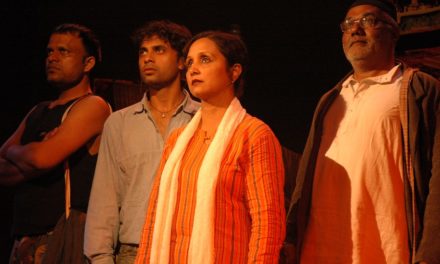Recently, Tata Steel Kolkata Literary Meet presented us with exquisite production, Gauhar, by the Primetime Theatre Co. It seemed that theatre lovers of Calcutta had made a beeline to Ghanshyam Das Birla Sabhagar to watch the impeccable performances of Rajeswari Sachdeva [young] and Zila Khan [old] as Gauhar Jaan! How can Calcutta forget the sepia days of history, when Gauhar Jaan, a courtesan, had almost 600 songs recorded by the English Gramophone Company and turned the heads of the ‘babus’ [young beaux] of the times!
Gauhar, by Mahesh Dattani, is based on the acclaimed novel My Name Is Gauhar Jaan, by Vikram Sampath. The play was directed by a well-known actress from Mumbai, Lillete Dubey. Gauhar is a name that Calcutta can instantaneously associate itself with. Gauhar was born Angelina Yeoward in 1873, as her mother, Victoria Hemmings, married an Armenian Christian, Robert Yeoward, who in 1879 left them in the lurch, as he suspected his wife of having an illicit relationship with some Khursheed. Victoria converted to Islam and took a new name, Badi Malka Jaan. She was a Kathak dancer, a talented courtesan, and a poet. Her daughter, Angelina, became Gauhar.

Gauhar Jaan with her mother. Photo courtesy of Pratiti Ganatra.
It was disturbing to see how both mother and daughter underwent myriad bad experiences in life, being deceived by their servants, accountants, the beaux they had to keep in good humor! While her mother was alive, and she was treated specially by the composer Nawab Wajid Ali Shah, Gauhar received proper tutelage, befitting protection from evil forces, and she could easily concentrate on her practice in classical music. She could sing in many languages, and she was the first courtesan to have some 600 songs recorded on 78 r.p.m. long-playing discs! Young Gauhar’s [Rajeswari Sachdeva] lively interaction with Mr. Gaisbert of the Gramophone Company was quite enjoyable onstage. Gaisbert, played by Denzel Smith, proved professional and impeccable. His flawless British pronunciation was an added bonanza. While accepting the gauntlet thrown down on her, Gauhar continued belting out one number after another in many languages, including Bengali, with matchless precision. “Ure galo praaner pakhi, ure galo, ar elo naa” [The bird has flown off the cage of my life, it has flown away, never to return]. To keep pace with the English numbers, Gauhar sang this song at such a speed, with such elan, that Smith had to eat his words. He had to accept that Gauhar could even best any English singer with her insuperable skill.

Gauhar Jaan with Mr. Gaisbert. Photo courtesy of Pratiti Ganatra.
Perseverance in music, winning the hearts of rich folks, being deceived by accountants, moving houses from Calcutta to Benares—all were brilliantly portrayed onstage. Gauhar’s loneliness intensifying upon her mother’s demise, her crooning of her mother’s lines “Break, break your soul till it opens,” her falling back on Abbas, the new caretaker of accounts upon the dismissal of Bhoglu, the previous servant. and topping it all, Gauhar’s incredible experience while moving the court to assert her claim to her mother’s property. Her own father, the Armenian Christian, agreed to declare in court that she was his daughter by Badi Malka Jaan, only because the two gold bangles that Gauhar had handed him fetched almost Rs. 15,000, which would meet his expenses to educate his two children from his second marriage! Pelf and love never go hand in hand, and this was proved again when Abbas, who was blind in love for her at the inception, refused to marry her. He would lose his claim to his father’s property if he agreed to enter into wedlock, he blabbed. But, surprisingly enough, he spent no second thought in staking his claims to the dead Gauhar Jaan’s property. Wasn’t it then a ‘tawaif’s’ [fallen woman] property, detestable in the eyes of the so-called gentlemen of respectable society?
In her last years at Mysore, Gauhar’s daily brush with music, her pursuit of the seven notes of Indian Classical music, made us think quite cogently, “If music be the food of love, play on”. As she looked for love, she never hesitated to offer her heart to anyone who won her with his assurance of togetherness. Gauhar [Rajeswari Sachdeva] left the audience in tears, and Zila Khan [Gauhar in her old age], daughter of the maestro Ustad Vilayat Khan, acted their parts so well that the audience could not tell whether it was a stage-show or real! It was as though time had stood still aeons ago, in the times of Gauhar Jaan. Kudos to the drama troupe and to Lillete Dubey, the director. May we have many more chances to be audiences to such brilliant performances.
This post was written by the author in their personal capacity.The opinions expressed in this article are the author’s own and do not reflect the view of The Theatre Times, their staff or collaborators.
This post was written by Ketaki Datta.
The views expressed here belong to the author and do not necessarily reflect our views and opinions.


















